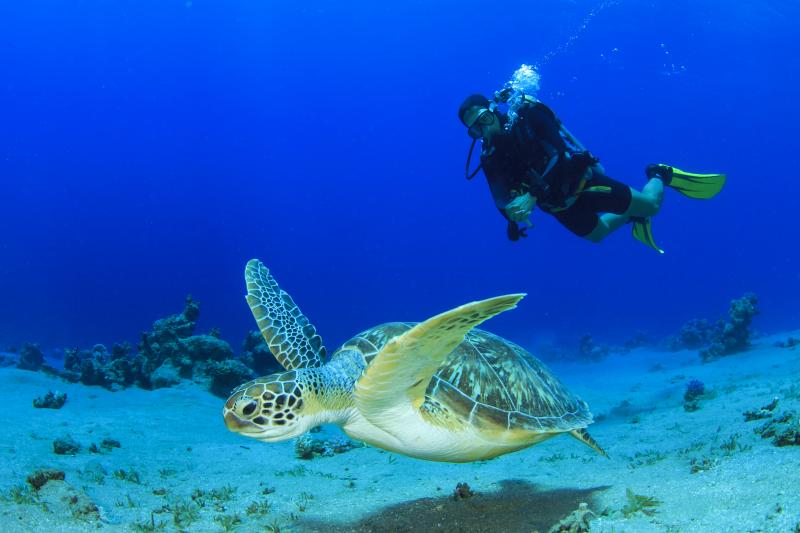Supporting Grenada's national transformation to a Blue Economy Ocean State, and development of a National Blue Economy and Oceans Governance Institute
Ministry of Economic Affairs, Directorate-General Agro Government of the Netherlands
#SDGAction40034
Description
The Parties will develop a Blue Grenada Concept Note for optimizing Grenada's coastal, marine and ocean resources and for the establishment of a dedicated Blue Growth and Oceans Governance institute, which will be hosted in Grenada, and possibly extending this cooperation also to other Caribbean Islands and to Africa, Asian and Pacific island countries including Indonesia.
Grenada: Unique opportunities offered within its EEZ, including its many MPAs its fishing zones, its EU Fish Export License, its marine tourism potential, unique genetic biodiversity of the hemisphere's largest submarine volcano, the possibility of seabed minerals such as rare earth metals and potential oil and gas depositsThe Dutch Ministry of Economic Affairs / DG Agro will share through a networked team of relevant partners knowledge and provide technical assistance to Grenada Ministry of Agriculture and Environment and Ministry of Tourism and other relevant Ministries to be determinded through the Prime Minister's Office.
A Blue Grenada Concept note will be developed by both parties, including a sustantive program and concrete roadmap and the specific deliverables and benefits for each country.
- Government of Grenada
SDGS & Targets
Goal 14
Conserve and sustainably use the oceans, seas and marine resources for sustainable development
14.1
By 2025, prevent and significantly reduce marine pollution of all kinds, in particular from land-based activities, including marine debris and nutrient pollution
14.1.1
(a) Index of coastal eutrophication; and (b) plastic debris density
14.2
By 2020, sustainably manage and protect marine and coastal ecosystems to avoid significant adverse impacts, including by strengthening their resilience, and take action for their restoration in order to achieve healthy and productive oceans
14.2.1
Number of countries using ecosystem-based approaches to managing marine areas
14.3
Minimize and address the impacts of ocean acidification, including through enhanced scientific cooperation at all levels
14.3.1
14.4
By 2020, effectively regulate harvesting and end overfishing, illegal, unreported and unregulated fishing and destructive fishing practices and implement science-based management plans, in order to restore fish stocks in the shortest time feasible, at least to levels that can produce maximum sustainable yield as determined by their biological characteristics
14.4.1
14.5
By 2020, conserve at least 10 per cent of coastal and marine areas, consistent with national and international law and based on the best available scientific information
14.5.1
14.6
By 2020, prohibit certain forms of fisheries subsidies which contribute to overcapacity and overfishing, eliminate subsidies that contribute to illegal, unreported and unregulated fishing and refrain from introducing new such subsidies, recognizing that appropriate and effective special and differential treatment for developing and least developed countries should be an integral part of the World Trade Organization fisheries subsidies negotiation
14.6.1
Degree of implementation of international instruments aiming to combat illegal, unreported and unregulated fishing
14.7
By 2030, increase the economic benefits to Small Island developing States and least developed countries from the sustainable use of marine resources, including through sustainable management of fisheries, aquaculture and tourism
14.7.1
Sustainable fisheries as a proportion of GDP in small island developing States, least developed countries and all countries
14.a
Increase scientific knowledge, develop research capacity and transfer marine technology, taking into account the Intergovernmental Oceanographic Commission Criteria and Guidelines on the Transfer of Marine Technology, in order to improve ocean health and to enhance the contribution of marine biodiversity to the development of developing countries, in particular small island developing States and least developed countries
14.a.1
14.b
Provide access for small-scale artisanal fishers to marine resources and markets
14.b.1
Degree of application of a legal/regulatory/policy/institutional framework which recognizes and protects access rights for small‐scale fisheries
14.c
Enhance the conservation and sustainable use of oceans and their resources by implementing international law as reflected in United Nations Convention on the Law of the Sea, which provides the legal framework for the conservation and sustainable use of oceans and their resources, as recalled in paragraph 158 of "The future we want"
14.c.1
Number of countries making progress in ratifying, accepting and implementing through legal, policy and institutional frameworks, ocean-related instruments that implement international law, as reflected in the United Nations Convention on the Law of the Sea, for the conservation and sustainable use of the oceans and their resources
SDG 14 targets covered
Deliverables & Timeline
Resources mobilized
Partnership Progress

Feedback
Action Network

Timeline
Entity
SDGs
Region
- Europe
- North America
Website/More information
Countries

Contact Information
Saskia Tjeerdsma, Policy Officer MDGs - Post 2015 Agenda

